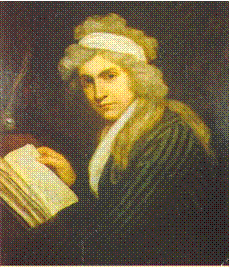

•Declaration of the
Rights of Man
•Wollstonecraft
had been living in Paris during the French Revolution
and knew many of its leaders.
•A Vindication of
the Rights of
Women
•outline
on the inequalities that existed between the sexes.
•disheartened
that the leaders of the Revolution did not extend equality
to women.
